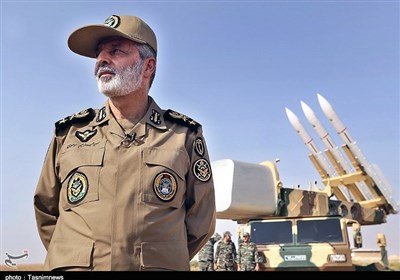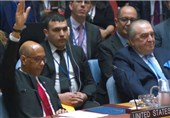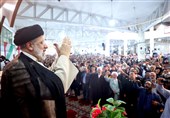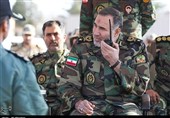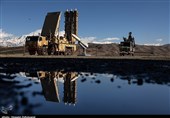Iranian FM, UN Anti-Drug Chief Discuss Efforts to Combat Narcotics
TEHRAN (Tasnim) - Iranian Foreign Minister Mohammad Javad Zarif and executive director of the United Nations Office on Drugs and Crime (UNODC), Yury Fedotov, held a meeting in Austria on Tuesday to take a deeper look at the global efforts to fight against narcotics.
The meeting took place in the Austrian capital of Vienna on the sidelines of the first day of a fresh round of nuclear negotiations between Iran and the six major world powers over Tehran’s peaceful nuclear program.
Vienna is the home to one of the four headquarters of the United Nations.
During the Tuesday get-together, Zarif and Fedotov exchanged views on the international efforts that are necessary to fight against the growing menace of drug-trafficking.
Fedotov, who is also director general of the United Nations Office at Vienna, has already praised Iran for its successful efforts at the anti-narcotics campaign.
“Iran takes a very active role to fight against illicit drugs," he told reporters before an international meeting in Vienna on March 13-14 on global efforts to combat narcotics.
In 2012, Iran seized 388 metric tons of opium, the equivalent of 72 percent of all such seizures around the world.
"It is very impressive," Fedotov had announced.
Some countries, including Britain and Denmark, have in recent years stopped providing funding for UNODC drug control programs in Iran under the pretext that Tehran uses death penalty in punishing drug traffickers, Reuters quoted diplomats as saying.
However, Fedotov has made clear the UNODC was not considering halting support for Iran.
"I don't believe that the international community would welcome this because it would mean, as a possible reaction from Iran, that all these huge quantities of drugs, which are now being seized by Iranians, would flow freely to Europe," he said at the time.
In recent decades, Iran has been hit by drug-trafficking, mainly because of its 936- kilometer shared border with Afghanistan, which supplies over 90% of the world's opium, the raw ingredient of heroin.
The United Nations has estimated in the past that opium trafficking accounts for up 15 percent of Afghanistan’s gross domestic product, but the figure is expected to rise as international military and development spending declines with the NATO withdrawal at the end of 2014.
Iran is on a major transit route for drugs being smuggled from Afghanistan to Europe, the Middle East and Africa, and the country's war on drug-traffickers has claimed the lives of nearly 4,000 Iranian police forces over the past 34 years.


